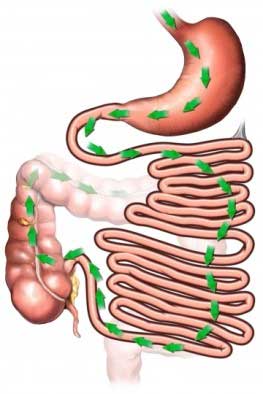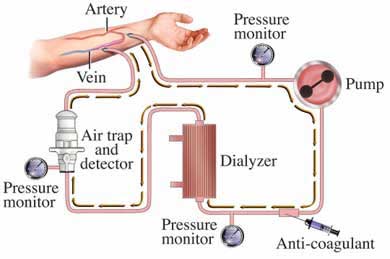An Escherichia coli (E. coli) infection is caused by bacteria found in the environment, foods, and intestines of people and animals. E. coli are a large and diverse group of bacteria and, while most strains of E. coli are harmless, others can make you sick. The U.S. Centers for Disease Control and Prevention (CDC) reports that, “Some kinds of E. coli bacteria cause an infectious disease when they make a toxin called Shiga toxin. The bacteria that make these toxins are called “Shiga toxin-producing E. coli,” or STEC for short.” Most humans are made ill when they come in contact with STEC bacteria in contaminated food or water.
STEC bacteria live in the digestive tract of ruminant animals (a type of animal that brings up food from its stomach and chews it again), including cattle, goats, sheep, deer, and elk. The major source for human E. coli illness comes from cattle. STEC that cause human illness generally do not make animals sick. Other kinds of animals, including pigs and birds, sometimes pick up STEC from the environment and may spread it.
E. coli infections are the leading cause of bloody diarrhea, while other strains cause urinary tract infections, respiratory illness, pneumonia, and other illnesses.
What causes an E. coli infection?
This infection is caused by some strains of the E. coli bacteria. Most E. coli infections are caused by:
- Eating undercooked beef, especially ground beef
- Drinking contaminated water
- Drinking unpasteurized milk
- Working with cattle
Reports of E. coli related illness tend to increase in the summer months. This is likely due to warmer weather, eating outdoors and food not being kept at appropriately cold temperatures, which allows for bacterial growth.
Digestive Pathway Through Stomach and Intestines

Copyright© Nucleus Medical Media, Inc.
Risk Factors
A risk factor is something that increases your chance of developing a disease or condition. Risk factors for contracting E. coli include:
- Being a child or older adult
- Having another illness
- Working with cattle
- Living in northern U.S. states
Symptoms
Most people with an E. coli infection start feeling sick 3 to 4 days after eating or drinking something that contains the bacteria. Symptoms can begin from 1 to 10 days after exposure, though. Symptoms of E. coli infection may be different for each person, but often include:
- Abdominal cramps
- Watery diarrhea
- Dehydration
- Fatigue
- Bright red, bloody stools
- Mild fever (less than 101˚F)
- Nausea or vomiting
Most people start to feel better within 5 to 7 days. Most infections are very mild, but others are severe and may even be life-threatening. Always contact your healthcare provider if you have diarrhea that lasts for more than 3 days or is accompanied by high fever, blood in the stool, or so much vomiting that you cannot keep liquids down and you pass very little urine.
Diagnosis and Treatment Options
You will be asked about your symptoms and medical history, and a physical examination will be done. A stool sample may be collected to test with a stool culture.
Once diagnosed with E. coli, treatment options include:
Fluid Replacement and Monitoring
Most people will get better in 5-10 days. They rarely need a specific treatment. Avoid medication that stops diarrhea. Drink plenty of water and fluids. Fluids through an IV line may be needed in cases of severe dehydration.
Treatment for Hemolytic Uremic Syndrome (HUS)
HUS is a life-threatening condition. It occurs in some people with an E. coli infection. HUS may need to be treated with blood transfusions and kidney dialysis. Symptoms may include:- Pale complexion, tiredness, and irritability
- Small, unexplained bruises, or bleeding from the nose or mouth—caused by problems in the body’s clotting mechanism
Kidney Dialysis

Copyright© Nucleus Medical Media, Inc.
The CDC recommends that antibiotics not be used to treat E. coli infections. There is no evidence that antibiotics are helpful, and they may actually increase the risk of HUS. Over-the-counter antidiarrheal medications also may increase that risk.
Prevention
Researchers are exploring ways to vaccinate animals and humans to prevent E. coli infections. Until that time, methods to help prevent E. coli infection include:
- Follow the 4 rules of food safety:
- Clean
- Separate
- Cook
- Chill
- Cook all ground beef and hamburger thoroughly (at least 145°F).
- Avoid eating undercooked hamburger or other ground beef.
- Keep raw meats separate from ready-to-eat foods.
- Wash hands, counters, and utensils with hot soapy water after they are exposed to raw meat.
- Drink only pasteurized milk, juice, and cider.
- Wash fruits and vegetables under running water.
- Drink municipal water that has been treated with a disinfectant.
- Wash hands after bowel movements and after changing soiled diapers.
- Do not swallow water when swimming and when playing in lakes, ponds, streams, swimming pools, and backyard “kiddie” pools.
Source: U.S. Centers for Disease Control and Prevention: www.cdc.gov/ecoli
Schedule an appointment with Christina Stark, NP at Beacon Internal Medicine.